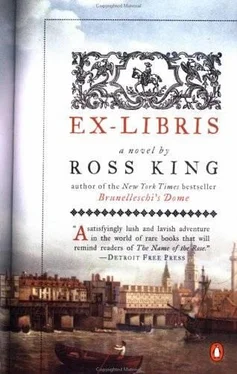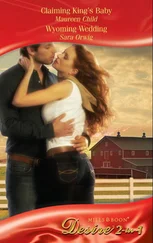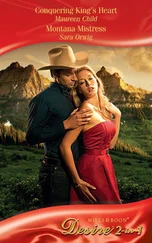It was a man, spreadeagled facedown on the bank, his legs submerged in the swollen river. Bright swung the pole boom-like across the edge of the bank, but even before it prodded his shoulder and rolled him on to his back it was obvious he was dead. In the ghastly light of the lantern I could see that his throat had been cut from ear to ear, almost enough to sever the head, which flopped horrifically sideways. I felt my gorge rise in my throat and looked away, but Bright was disembarking, splashing knee-deep through the water and holding the lantern aloft. No sooner had he reached the body than the current struck both of them, but before the lantern was extinguished and the body rolled into the sedge I caught a swift glimpse of the face-of the bulbous nose and, beneath it, the pair of wooden teeth tightly clenched as if in some inarticulate rage.
One of my earliest memories is of watching my father write. He was a scrivener, so writing was his profession, an affair governed by all sorts of precise and complex rituals. I can still picture him hunched as if in supplication over his battered escritoire, his hair hanging over his face, a turkey quill pivoting back and forth in his slender hand. In appearance he was, as I am, unimposing, a small man with dark garb and the morose, worried eyes of a puffin. But to watch him at work was to marvel at the genius of the scribe's hand. I used to stand beside his desk, holding aloft a candle as he mixed his ink or trimmed his quills with a penknife as carefully as if performing the most delicate surgery. Then he would dip the tapered point into the ink-horn and, magically, begin inscribing the chalked and pumiced parchment spread on the desk before him.
What was my father writing? I had no idea. Those were the innocent days before my hornbook taught me how to decipher the bowing heads and flourishing limbs of his curious ink-figures, and so at the time they were as irresistible and beguiling as the hieroglyphics of the Pharaohs. In fact my poor father must have been writing passages of the dullest possible sort. Letters patent, court rolls, parish registers: that type of thing. The scrivener led a life of rare drudgery. Only when I was older did I realise that my father's back was permanently bowed from hunching over his desk and his eyes dim because he was too poor, much of the time, to afford a candle. His labours in the tiny garret room that served as his study were relieved once a week when he visited the shops of ink-makers and parchment-sellers, or when he delivered the fruits of his efforts to the Inns of Chancery in whose pay he was so precariously kept. As I grew older I sometimes accompanied him on these forays through the streets of London. With the rolled-up parchments tucked under his arm or inside a weather-worn scrip strapped round his neck he would present himself at Clement's Inn, or one of two dozen others, and I would sit in quiet anterooms, watching through the doorway as my hunchbacked father in his dirty ruff shyly and with trembling hands unscrolled his wares on the desk of thin-chopped unsmiling law clerks.
How well I remember those voyages, even now. Hand in hand through the streets the pair of us would roam, into strange and forbidding buildings, worlds of power and privilege far removed from our tiny house and my father's ink-stained escritoire. Twice we were even ushered by silk-clad pages into the Signet Office in Whitehall Palace itself. Most often of all, though, on these weekly odysseys we visited Chancery Lane, because it was here, on the east side of the street, near the gaming-house in Bell Yard-another favourite haunt of my poor father, alas-that the Rolls Chapel stood.
My father, a man with atheistical leanings, often joked that the Rolls Chapel was the only church he ever attended. And from the outside the building did indeed look exactly like a church. It had a stone bell-tower, hexagonal in shape, together with stained-glass windows that overlooked the barristers and magistrates bustling up and down Chancery Lane. Inside a nail-studded oak door was a chancel and a long nave filled with row upon row of pews. Yet the pews were filled not with pious parishioners and their prayer-books but with heavy morocco-bound books and stacks of paper and parchment three feet high. And those who came inside-little groups that huddled in the northwest corner-prayed not to God but the Lord Chancellor, or rather to the Master of the Rolls, his adjutant, who heard suits from where he perched priest-like on his bench in the chancel. For the Rolls Chapel may have been a church at one time-built, my father told me, for the converted Jews of England-but it had long since been converted itself, and now it housed in its bell-tower and in the crypt under its grey flagstones the voluminous records of the Court of Chancery.
I crossed my childhood ghost-the tiny Isaac Inchbold dressed in his russet frock and moth-holed hose-as I took my place on a pew beside the door on the morning after my return from Cambridge. The sun in the stained glass was casting across the flagged aisles the brilliant blossoms of light I remembered so well from those distant mornings when I sat kicking my feet against a prie-dieu and awaiting my father's descent from the tower or ascent from the crypt. Now, as then, the Rolls Chapel was silent and smelled mustily of old parchment and ancient stone.
But it was far from empty. From where I sat I could see dozens of clerks and scriveners threading carefully amongst the kneeling-stools and choir stalls, while my pew was shared by a congregation of a dozen gentlemen, most of whom looked like Cavaliers. And behind the worm-eaten chancel screen, before a small audience of lawyers in horsehair wigs, the Master of the Rolls, a fat man in scarlet robes, was holding court. I removed my fob-watch for inspection, then returned my anxious gaze to the tiny door to the bell-tower through which a clerk had vanished a few minutes earlier. Above the door was a sign: 'Rotuli Litterarum Clausarum.' I sighed and replaced the watch. I was in a desperate hurry, for I was in grave danger-and so, too, was Alethea.
It was now two days since my departure for Cambridge. I had arrived back in Alsatia the previous night after spending another entire day on the road. I had made haste for London because a terrible thought had occurred to me, one that set my nape and sideburns prickling. I realised that all of the strange concatenations-everything that some unknown person or persons had staged for me-led straight back to the cipher in the copy of Ortelius, a text I was obviously meant to discover and solve. Which meant that whoever was laying the trap had access to Pontifex Hall and its laboratory. Which meant that he was most probably one of only two people, either Phineas Greenleaf or Sir Richard Overstreet, or perhaps the two of them in league together. Whatever the case, the culprit had access not only to Alethea, but also to her trust. And one of them, most likely Sir Richard, had murdered Nat Crump.
Yet the events of the past few days had still perplexed me. I could not begin to guess why Crump should have been killed, nor how the various other strands-the break-ins at Nonsuch House, Henry Monboddo and his mysterious client, the Orinoco expedition-were connected to the errant parchment itself, the alpha and omega of the mystery, the Holy Grail that seemed to be receding ever farther beyond my grasp.
But then suddenly I had realised how I might cut through the Gordian knot after all-how I might get to the bottom of the mystery of Henry Monboddo and Wembish Park… and then, through them, to the identity of whoever lay at the heart of the whole affair. For the villain had not quite covered his tracks. The answer lay not at Wembish Park, I knew, but here in London, in Chancery Lane-in a few lines of text inscribed on a roll of parchment.
Читать дальше












